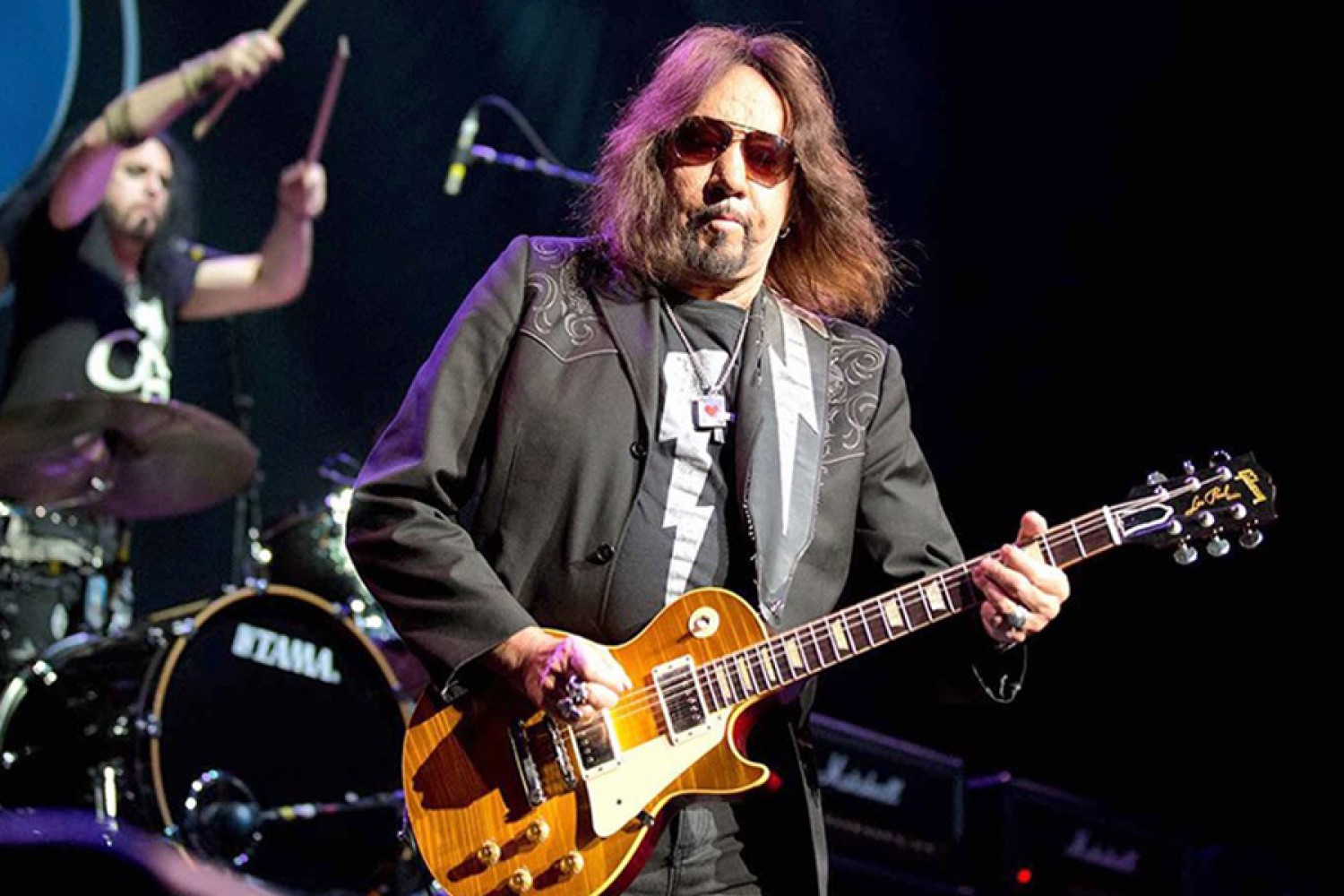Ace Frehley, the i.conic lead guitarist of KISS, has had a long and tumultuous relationship with his bandmates, particularly Gene Simmons Their conflict is a mix of personal, creative, and business disagreements that have evolved over the decades, reflecting the complexities of fame, addiction, and artistic vision.

From the outset, KISS was a band built on larger-than-life personas, and Ace Frehley, with his “Spaceman” character, became a fan favorite. His innovative guitar work and distinctive sound played a crucial role in defining KISS’s early success. However, as the band skyrocketed to fame in the 1970s, the pressures of stardom began to take a toll on Ace. His struggles with substance abuse became well-documented, leading to tensions within the band.
Gene Simmons, the band’s co-founder and bassist, often took on a more business-oriented role. He was focused on expanding KISS’s brand, seeking out lucrative deals and maintaining the band’s image. This often clashed with Ace’s more laid-back, artistic approach. While Simmons viewed KISS as a business empire, Ace saw it as a creative outlet. Their differing priorities became a source of conflict.
One of the significant flashpoints in their relationship occurred during the recording of the band’s albums. Ace’s growing dissatisfaction with the band’s direction, coupled with his substance issues, led to a lack of participation in recording sessions. This infuriated Simmons, who was keen on maintaining a strong work ethic. In interviews, Simmons has expressed frustration over Ace’s unpredictable behavior, often labeling him as unreliable. In contrast, Ace has claimed that Simmons’s domineering nature stifled his creativity.
The tensions came to a head in the late 1970s when Ace’s erratic behavior led to his temporary departure from KISS. After the release of the band’s solo albums in 1978, Ace was not only battling addiction but also feeling increasingly alienated from his bandmates. Simmons, who was heavily involved in the band’s business decisions, felt betrayed by Ace’s decisions to focus on his solo career. The fallout from this period saw Ace largely sidelined, with tensions boiling over in public statements and interviews.
Despite these conflicts, there were moments of reconciliation. After Ace left the band in 1982, he had a tumultuous career that included brief stints in other projects and personal struggles. In the late 1990s, KISS reunited with the original lineup for a highly successful tour, prompting fans to hope for a lasting resolution between Ace and Gene. However, old tensions re-emerged. The differences in their visions for the band continued to clash, with Simmons often taking the role of the pragmatist and Ace longing for creative freedom.
In the years that followed, both musicians have openly discussed their relationship, with Ace reflecting on the impact of his addiction and how it affected his time in KISS. Simmons, on the other hand, has maintained a more business-focused narrative, emphasizing the importance of professionalism in the music industry.
Their conflict encapsulates the struggles of many creative partnerships, where artistic vision and personal demons can lead to rifts. While Ace Frehley and Gene Simmons have had their share of disagreements, they also share a history that has shaped rock music. Their story serves as a reminder of the complexities of collaboration in the high-stakes world of rock and roll, where personal and professional lives often intertwine in unexpected ways.
